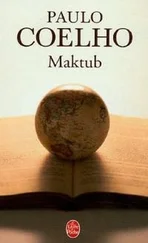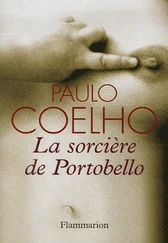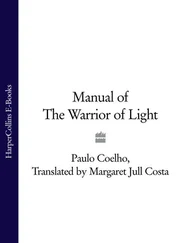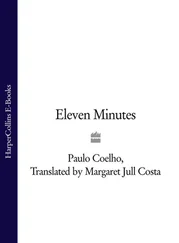Keen to put a stop to the problem, Coelho lands in Cairo, accompanied by Mônica Antunes and Ana Zendrera, the proprietor of Sirpus in Spain, which specializes in Arabic publications destined for the Middle East and North Africa. Since May 2005, only two companies, All Prints in Lebanon and Sirpus, have been legally authorized to publish his books in Egypt.
At the airport, which is full of soldiers carrying sub-machine guns, the three are greeted by Hebba and her husband, the activist Ahmed Mohammed. He is dressed in Western clothes, but she is wearing a beige hijab. They all speak English, which is Egypt’s second language. The small group goes straight to the Four Seasons Hotel, where a suite has been reserved for the author on the top floor with a view of Giza at the edge of the Sahara.
Hebba has drawn up a packed programme of events: interviews and TV appearances, visits to the famous (among them the Nobel Laureate Naguib Mahfouz, who is ninety and losing his sight, but determined to receive the author in his apartment for a cup of tea), a seminar at Cairo University and two talks, one at the Egyptian Association of Authors and the other at its rival, the Union of Egyptian Authors. At Paulo’s request, Hebba has arranged a lunch in one of the dining rooms of the Four Seasons to which the principal publishers and booksellers in the country have been invited, along with representatives of the Ministry of Culture. It is here that the author is hoping to ram home his point about defending the rights of the author. He tells Hebba: ‘You know perfectly well, Hebba, that when a warrior takes out his sword, he has to use it. He can’t put it back in its sheath unbloodied.’
The following morning, the lobby of the Four Seasons Hotel is invaded by TV network people waiting for the interviews Mônica has organized. Cameras, tripods, reflectors, cables and batteries are stacked in corners and spread out on tables and sofas. Individual interviews are the privilege of the television reporters; newspaper and magazine journalists have to make do with a press conference. The only exception is Al Ahram , the main Egyptian newspaper – state-run as, it seems, most are – which also has the privilege of being first in line. Once the interview is over, the reporter, Ali Sayed, opens his briefcase and asks the author to sign three books, The Alchemist, Maktub and Eleven Minutes – all of them pirate copies, bought in the street for US$7 each. In the early afternoon, the five go to a restaurant for a quick lunch washed down with Fanta, Coca-Cola, tea and mineral water. Although there is wine and beer available, the meal is going to be paid for by Ahmed, a Muslim, and good manners require that no alcohol be drunk.
Once the engagements with the press are over Coelho takes part in hurried debates at the two writers’ associations. At both, the number of members of the public is two or three times greater than the venues’ capacity and he attends kindly and good-naturedly to the inevitable requests for signings at the end. Before returning to the hotel, he is taken to Mohamed Heikal’s apartment. Heikal is a veteran politician who started his career alongside President Nasser, who governed from 1954 to 1970, and he has so far managed to weather the political upheavals in Egypt. Surrounded by bodyguards, Heikal receives his visitor in a small apartment. The walls are covered in photos of him with great international leaders of the twentieth century, such as the Soviet leader Nikita Khrushchev, Chou En-Lai of China, Jawalarhal Nehru of India and Chancellor Willy Brandt, as well as Leonid Brezhnev and, of course, Nasser himself. Coelho’s meeting with the Nobel Laureate Naguib Mahfouz is also subject to intense vigilance by security guards (years ago Mahfouz narrowly escaped death at his door when he was knifed in the neck by a Muslim fundamentalist who accused him of blaspheming against the Koran). The two speak rapidly in English, exchange signed copies of their books and that’s it. With the day’s agenda over, the evening is reserved for a boat trip on the Nile.
The following day the morning is free, allowing Coelho to wake later than usual, take his walk without hindrance and give some time to looking at news online. At one o’clock, he goes down to the hotel dining room for the lunch that he has suggested. In spite of the smiles and salaams during the presentations, it is clear that the idea is to set things to rights. Before the food is served and once all the guests are seated, one of the publishers stands up to greet the visitor and makes a point of stating that this is a meeting of friends.
‘The author Coelho has proved his commitment to the Arab peoples not only in his work but in brave public statements such as in his letter “Thank you, President Bush”, which clearly condemned the invasion of Iraq by the United States.’
Someone else speaks, and then it is Coelho’s turn. Beside him at the table are three pirate copies of his books, deliberately placed there in order to provoke unease among the publishers – the elegant men in jackets and ties who are seated before him. He begins gently, recalling that some of his books have found inspiration in both Egyptian and Arabic culture. Then, face to face with the pirates themselves, he broaches the thorny topic of piracy, saying: ‘Any author would, of course, love to see his books published in Egypt. My problem is precisely the opposite: I have too many publishers in Egypt.’
No one finds the joke funny, but he is unperturbed. He glances upwards, as if asking St George for the strength to defend his books, and then adopts a blunter approach.
He picks up a pirate copy of The Alchemist and waves it in the air. ‘I am here as a guest of Dr Hebba, that is of the Egyptian people. But I have come here on my own account as well because I want to sort out, once and for all, the problem of the pirate copies of my books being published here.’
The guests shift uncomfortably in their seats. Some, embarrassed, are doodling on their napkins.
Coelho knows full well that some are important figures in the Ministry of Culture (which has shares in many of the publishing houses he is accusing of piracy) and he makes the most of this opportunity: ‘The government neither punishes nor condemns piracy, but Egypt is a signatory to international treaties on royalties and must conform to them. I could get the best lawyer money can buy and win the case in international courts, but I’m not here merely to defend material values, I’m defending a principle. My readers here buy books at a cheap price and get cheap editions, and it’s got to stop.’
Coelho’s suggestion that they call an armistice doesn’t seem to please anyone.
‘I’m not interested in the past. Let’s forget what’s happened up to now. I’m not going to claim royalties on the 400,000 books published in a country where I’ve never even had a publisher. But from now on, any book of mine published in Egypt that is not produced by Sirpus or by All Prints will be considered illegal and therefore the subject of legal action.’
To prove that he’s not bluffing, he announces that there will be a special blitzkrieg in the Dar El Shorouk bookshop, next to the hotel: he will sign the first book produced under the new regime (a pocket version of The Alchemist in Arabic with the Sirpus stamp on it) as well as copies of the English translation of The Zahir . This awkward meeting ends without applause and with the majority of those present looking stony-faced.
Everything seems to be going as he predicted. The signing is a success and he says to any journalist who hunts him out: ‘I think the publishers have accepted my proposal. From now on, my Egyptian readers will read my books only in official translations published by Sirpus.’ His confidence, however, will prove short-lived, because the only real change in the situation is that now the pirates have another competitor in the market – Sirpus.
Читать дальше




